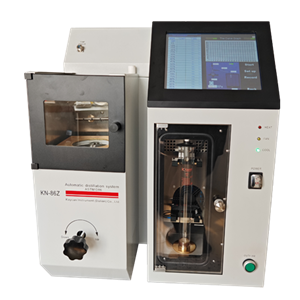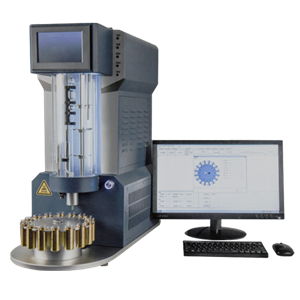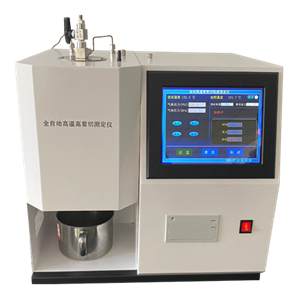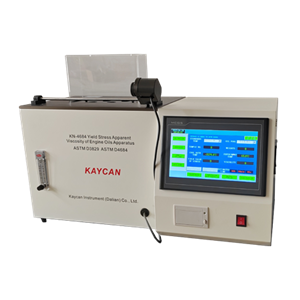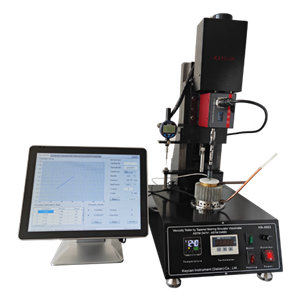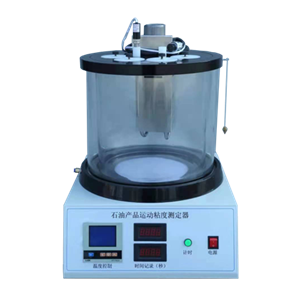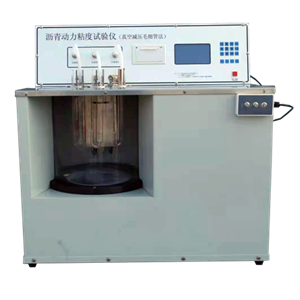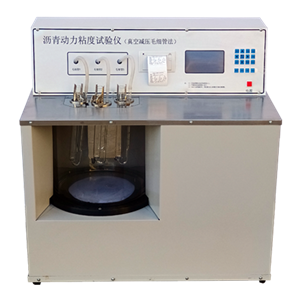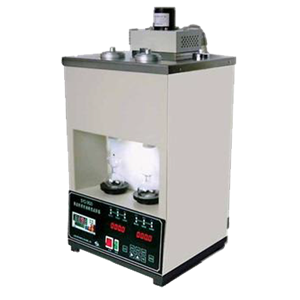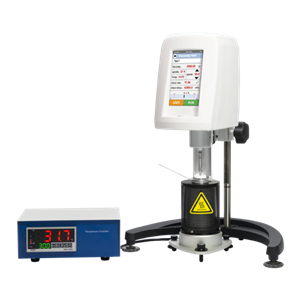-
ASTM D4684 Yield Stress And Apparent Viscosity Of Engine Oils
An engine oil sample is held at 80°C and then cooled at a programmed cooling rate to a final test temperature and held for a specified time period. At the end of this period, a series of increasing low torques are applied to the rotor shaft until rotation occurs to determine the yield stress, if any is exhibited. A higher torque is then applied to determine the apparent viscosity of the sample.
Send Email Details -
ASTM D5481 Apparent Viscosity At High Temperature And High Shear Rate By Multicell Capillary Viscometer HTHS
High-Temperature and High-Shear Rate Apparent Viscosity Tester (HTHS) covers the laboratory determination of high-temperature high-shear (HTHS) viscosity of engine oil at a temperature of 150℃ using a multicell capillary viscometer containing pressure, temperature, and timing instrumentation. The shear rate for this test method corresponds to an apparent shear rate at the wall of 1.4 million reciprocal seconds (1.4 3 106s-1).This shear rate has been found to decrease the discrepancy between this
Send Email Details -
Hot
ASTM D4683 Viscosity At High Temperature And High Shear Rate By Tapered Plug Viscometer
KN-4683 Apparatus for Viscosity by TBS conforms to ASTM D4683 Standard Test Method for Measuring Viscosity of New and Used Engine Oils at High Shear Rate and High Temperature by Tapered Bearing Simulator Viscometer at 150 °C and ASTM D4741 Standard Test Method for Measuring Viscosity at High Temperature and High Shear Rate by Tapered-Plug Viscometer. The ASTM D4683 covers the laboratory determination of the viscosity of engine oils at 150℃ and 1.0·106s-1 using a viscometer having a slightly tape
Send Email Details -
ASTM D2170 Viscosity Of Asphalts By Vacuum Capillary Viscometer
the kinematic viscosity characterizes flow behavior. the method is used to determine the consistency of bitumen as one element in establishing the uniformity of shipments or sources of supply. the specifications are usually at temperature of 60 and 135℃.
Send Email Details -
-
ASTM D2171 Apparatus for Viscosity of Asphalts
KN-2171 Apparatus for Viscosity of Asphalts conforms to ASTM D2171 Standard Test Method for Viscosity of Asphalts by Vacuum Capillary Viscometer. The viscosity at 60℃ characterizes flow behavior and may be used for specification requirements for cutbacks and asphalt binders. This time is measured for a fixed volume of the liquid to be drawn up through a capillary tube by means of vacuum, under closely controlled conditions of vacuum and temperature. The viscosity in Pascal-seconds is calculated by multiplying the flow time in seconds by the viscometer calibration factor.
Send Email Details -
ASTM D88 Asphalt Saybolt Viscometer
KN-88 Asphalt Saybolt Viscometer is designed and made as ASTM D88 Standard Test Method for Saybolt Viscosity. It covers the empirical procedures for determining the Saybolt Universal or Saybolt Furol Viscosities of petroleum products at specified temperatures between 21 and 99℃ (70 and 210℉).
Send Email Details -
ASTM D4402 Rotational Viscometer for Asphalt Viscosity
KN-4402 Rotational Viscometer for Asphalt Viscosity conforms to ASTM D4402 Standard Test Method for Viscosity Determination of Asphalt at Elevated Temperatures Using a Rotational Viscometer. A rotational viscometer is used to measure the apparent viscosity of asphalt at elevated temperature. The torque on the apparatus-measuring geometry, rotating in a thermostatically controlled sample holder containing a sample of asphalt, is used to measure the relative resistance to rotation. The torque and speed are used to determine the viscosity of the asphalt in pascal seconds, millipascal seconds, or centipoise.
Send Email Details

